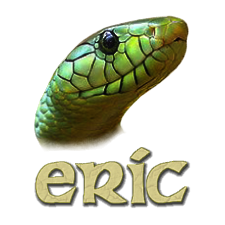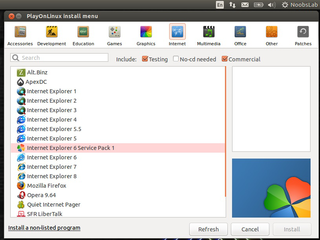
Vim is a free and open-source, screen-based text editor program. It is an improved clone of Bill Joy's vi. Vim's author, Bram Moolenaar, derived Vim from a port of the Stevie editor for Amiga and released a version to the public in 1991. Vim is designed for use both from a command-line interface and as a standalone application in a graphical user interface.

Quicksilver is a utility app for macOS. Originally developed as proprietary freeware by Nicholas Jitkoff of Blacktree, Inc., it is now an open-source project hosted on GitHub.

AutoHotkey is a free and open-source custom scripting language for Microsoft Windows, initially aimed at providing easy keyboard shortcuts or hotkeys, fast macro-creation and software automation that allows users of most levels of computer skill to automate repetitive tasks in any Windows application. User interfaces can easily be extended or modified by AutoHotkey. The AutoHotkey installation includes its own extensive help file, and web-based documentation is also available.
This article provides basic comparisons for notable text editors. More feature details for text editors are available from the Category of text editor features and from the individual products' articles. This article may not be up-to-date or necessarily all-inclusive.

eric is a free integrated development environment (IDE) used for computer programming. Since it is a full featured IDE, it provides by default all necessary tools needed for the writing of code and for the professional management of a software project.

In computing, a tiling window manager is a window manager with an organization of the screen into mutually non-overlapping frames, as opposed to the more common approach of coordinate-based stacking of overlapping objects (windows) that tries to fully emulate the desktop metaphor.
Macro Express is a Windows-based application that allows automation of routine functions, such as filling out web forms, opening programs, and performing mouse clicks, by means of a simple, specialized programming language with support for variables, if-then-else logic, loops and other functions.

Geany is a free and open-source lightweight GUI text editor using Scintilla and GTK, including basic IDE features. It is designed to have short load times, with limited dependency on separate packages or external libraries on Linux. It has been ported to a wide range of operating systems, such as BSD, Linux, macOS, Solaris and Windows. The Windows port lacks an embedded terminal window; also missing from the Windows version are the external development tools present under Unix, unless installed separately by the user. Among the supported programming languages and markup languages are C, C++, C#, Java, JavaScript, PHP, HTML, LaTeX, CSS, Python, Perl, Ruby, Pascal, Haskell, Erlang, Vala and many others.

PlayOnLinux is a graphical frontend for the Wine software compatibility layer which allows Linux users to install Windows-based video games, Microsoft Office, Microsoft Internet Explorer, as well as many other applications such as Apple iTunes and Safari.

Uzbl is a discontinued free and open-source minimalist web browser designed for simplicity and adherence to the Unix philosophy. Development began in early 2009 and is still considered in alpha software by the developers. The core component of Uzbl is written in C, but other languages are also used, most notably Python. All parts of the Uzbl project are released as free software under GNU GPL-3.0-only.

Sublime Text is a shareware text and source code editor available for Windows, macOS, and Linux. It natively supports many programming languages and markup languages. Users can customize it with themes and expand its functionality with plugins, typically community-built and maintained under free-software licenses. To facilitate plugins, Sublime Text features a Python API. The editor utilizes minimal interface and contains features for programmers including configurable syntax highlighting, code folding, search-and-replace supporting regular-expressions, terminal output window, and more. It is proprietary software, but a free evaluation version is available.

Kivy is a free and open source Python framework for developing mobile apps and other multitouch application software with a natural user interface (NUI). It is distributed under the terms of the MIT License, and can run on Android, iOS, Linux, macOS, and Windows.

mpv is free and open-source media player software based on MPlayer, mplayer2 and FFmpeg. It runs on several operating systems, including Unix-like operating systems and Microsoft Windows, along with having an Android port called mpv-android. It is cross-platform, running on ARM, PowerPC, x86/IA-32, x86-64, and MIPS architecture.

ranger is a free and open-source file manager with text-based user interface for Unix-like systems. It is developed by Roman Zimbelmann and licensed under the terms of the GNU General Public License. The program can accomplish file management tasks with a few keystrokes, and mouse input is optional. In conjunction with extensions including the rifle file opener and scope.sh, ranger can be scripted to open files with pre-defined programs, and to display a preview of the selected file by calling external programs.

qutebrowser is a Chromium-based web browser for Linux, Windows, and macOS operating systems with Vim-style key bindings and a minimal GUI. It is keyboard-driven and is inspired by similar software such as Vimperator and dwb. It uses DuckDuckGo as the default search engine. qutebrowser is included in the native repositories of Linux distributions such as Fedora and Arch Linux. qutebrowser is developed by Florian Bruhin, for which he received a CH Open Source award in 2016.

Art of Illusion is a free software, and open source software package for making 3D graphics.

Foliate is a free e-book reading application for desktop Linux systems. The name refers to leaves, meaning "(getting) leafy" or "…-leaved".

Unison is a file synchronization tool for Windows and various Unix-like systems. It allows two replicas of a collection of files and directories to be stored on different hosts, modified separately, and then brought up to date by propagating the changes in each replica to the other. Syncing replicas directly Unison is independent of third-party providers.

Termux is a free and open-source terminal emulator for Android which allows for running a Linux environment on an Android device. Termux installs a minimal base system automatically; additional packages are available using its package manager, based on Debian's.















